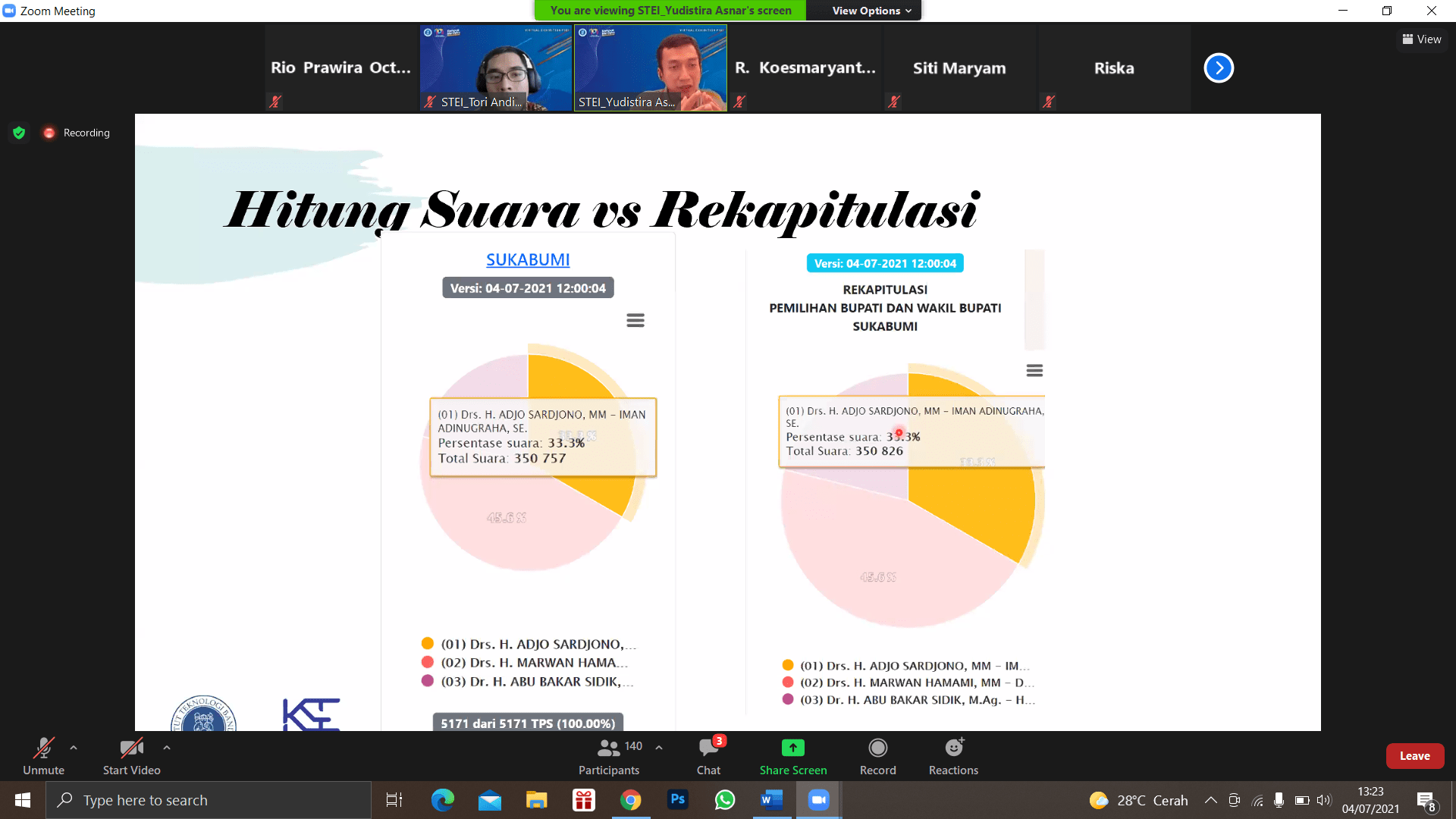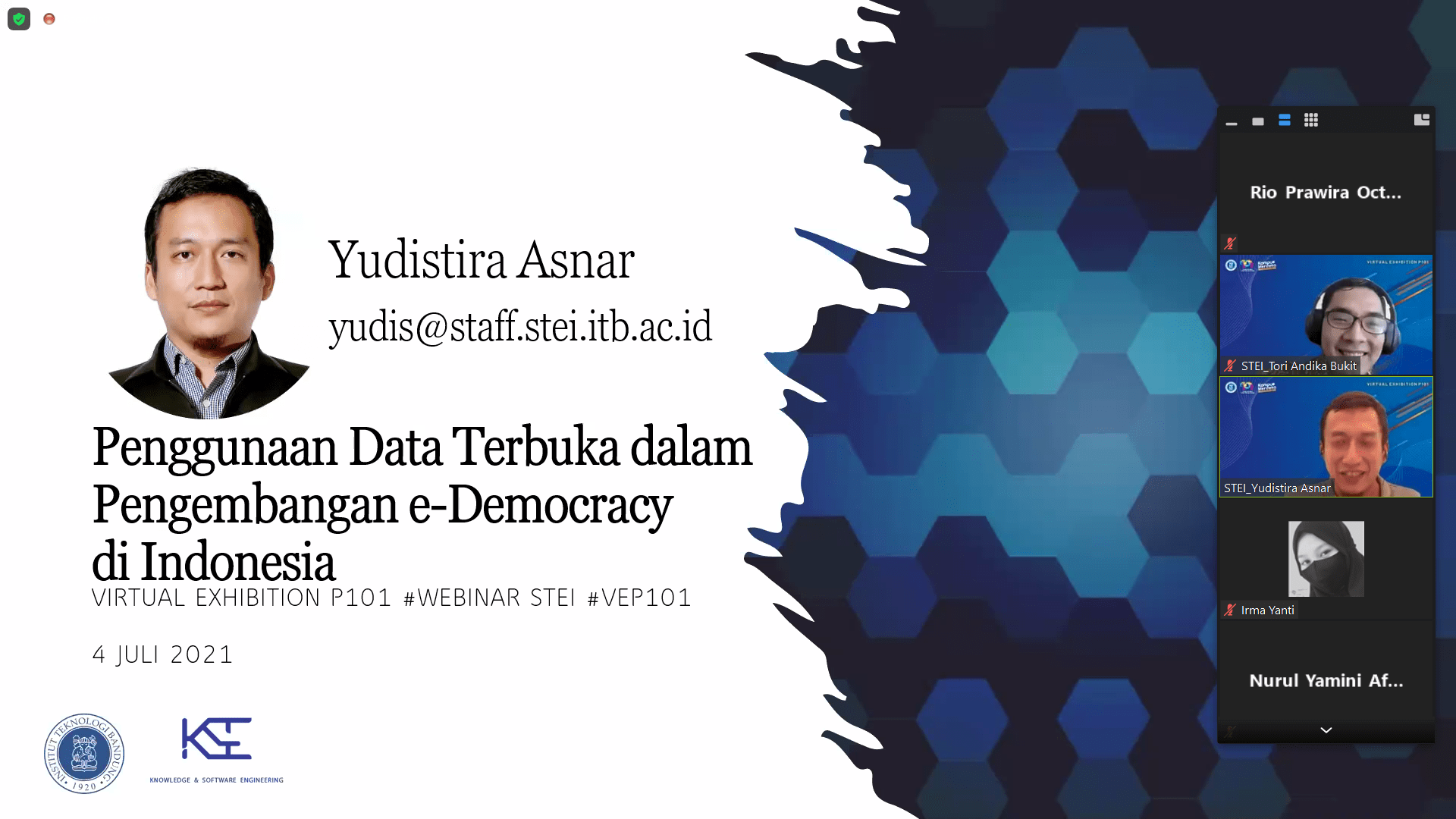Yudistira Dwi Wardhana Asnar, S.T, Ph.D: Open Data Plays an Active Role in Government
The PTTI 101 STEI webinar closed with the webinar “Use of Open Data in the Development of e-Democracy in Indonesia” by Yudistira Dwi Wardhana Asnar, S.T., Ph.D. a lecturer from KK Software Engineering and Knowledge ITB. In general, this webinar will explain how the democratic system in Indonesia is supported by electronics.
Open data is public data that can be accessed so that several functions are obtained, such as the community being able to create new businesses by analyzing data-based patterns and trends. In addition, open data can increase the level of public trust in the government. Open data is not only carried out by the government but businesses and organizations are also currently doing open data. The data used in this open data is legal data.
“Open data should not contain additional data that is only for that data,” he emphasized, as the main speaker.
In open data, there are 5 levels in it as follows.
- 1-star: Data available on the web in any format, open license
- 2-star: Machine-readable structured data
- 3-star: Machine-readable structured data in a non-proprietary format
- 4-star: Using open standards from W3C
- 5-star: Connects data to each other to provide various information
The beginning of the existence of open data is due to the regulations in Presidential Regulation No. 96 of 2018 – SPBE regarding public information disclosure. Besides that, they also want to have a good image, get active participation from citizens for development, which are other things that make data open.
The 2014 election website is shown whose data is still not machine-readable because it uses pdf format. In 2019, the data can only be realized by machines. Since the 2019 election, it has moved to 3 or 4 stars.

“In 2020, there is no visible data collection by scanning, but directly taking photos from TPS by KPPS. So the level of accuracy and trust is higher,” said Yudistira Dwi Wardhana Asnar.
The data displayed to the public is made as attractive as possible with a data visualization format. The data is made in the form of analytics with various graphs and colors that describe something.
Some of these challenges are: First, data preparation still requires technical support and requires a lot of manual work. Second, several agencies have a coding system for an entity such as for cities/districts that vary between agencies. Third, the quality and the relationship between data are important in gaining knowledge or insights.
At the end of the presentation session, they are told what projects are currently being worked on, ie. Expands the data analytics beyond “election” and build series of prototypes of voting systems such as electronic, internet, and blockchain-based)
In this way, elections are only one indicator of democratic practice. Then open data is only a first step to building active community participation in development and open data also opens research and business development opportunities.
This webinar can also be watched on the STEI ITB Youtube channel:

